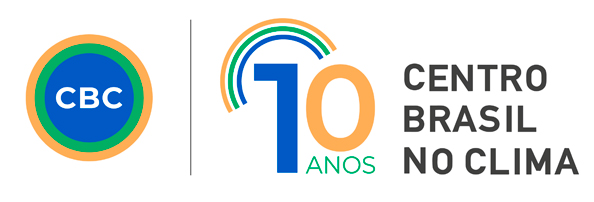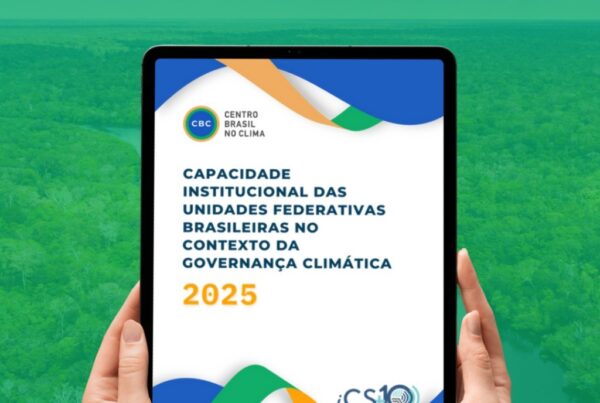Check out the CBC Executive Report and learn more about our work in 2023. Over the course of 27 pages, we present our advocacy actions, highlight our strong work in the area of just transition, highlight the initiatives developed on behalf of the Green Brazil Consortium and celebrate the work of The Climate Reality Project Brazil team, through the Operação COP project, in training new leaders.
Collaboration with important Climate Investment Funds (CIF) initiatives, the pioneering decarbonization project of the largest registry office in Rio de Janeiro, a major event with the Rio de Janeiro Court of Justice and the preparation of a complete diagnosis of climate policies in the 27 states are other actions highlighted in the publication.
Check out the letter from our Executive Director, Guilherme Syrkis, and download the file to read the full report.
Letter from the CEO
I recently had the opportunity to have dinner with Ambassador Rubens Ricupero and some friends, most of whom are millennials. Ricupero had just re-released his memoirs book. The ambassador is an impressive figure, renowned for his simplicity and vast knowledge of Brazil. As a former Minister of the Environment and Finance, he is often credited with being the architect of the Real Plan. When asked what advice he would give to the young people present, Ricupero mentioned two: the first is to learn to communicate, speaking and writing objectively and clearly. “This makes life much easier and prevents our efforts from being forgotten.” The second is to avoid setting too distant deadlines to achieve your goals. “This will make you bored and probably frustrated and prone to giving up. Creating short- and medium-term goals makes it easier to achieve them and maintain diligence.” This advice resonated deeply with me, as it accurately reflects the challenges I face in managing CBC.
First, it is not easy to have powerful communication that stands out amidst the profusion of information and content on an ever-changing social media space. But, as the Bible says, “you were faithful with a few things, I will put you in charge of many things”. We objectively and clearly follow this principle in our report, disclosing what we have done at all times diligently and steadfastly. Ambassador Ricupero’s second piece of advice also resonates with me, as it often seems like we are acting tactically, without long-term strategic planning. With so many changes in the scenario all the time, this becomes a challenge. Although I understand the importance of continuous strategic planning inspired by Ricupero, setting short and medium-term objectives and seeking to achieve them with all the care we have had since 2020.
2023 has been the most difficult year in financial terms since we took over the CBC. Our main funders faced difficult transition times, resulting in a dramatic reduction in resources, which generated enormous uncertainty. We made a great effort to diversify and seek alternatives, balancing between creating the greatest impact following the mission of a third sector institution and focusing on prospecting new sources of resources to maintain minimum management stability. We tried to harmonize both, and managed to keep valuable employees, but unfortunately losing others.
Demand for professionals with climate change expertise has grown, especially in the private sector, making salaries more competitive. However, we survived with a committed team, submitting tenders for several calls for proposals in consortium with important partners. We sought to maximize the greatest possible impact to honor and fulfill our mission of advancing the climate agenda in the first year of the Lula government, with Marina Silva as Minister of the Environment and many dear, well-intentioned friends in the government, but all of them facing great challenges. I learned during my experience in the federal government that the government’s greatest enemy is the government itself. I always knew that the biggest challenge for this government would be the contradictions in the energy industry, especially in the oil and gas industry.
In this sense, the CBC played an important role in the advocacy work, together with other organizations, by questioning the possibility of Petrobras, exploring for oil in the mouth of the Amazon and promoting a balanced debate on exploration in the Equatorial Margin region. I was one of the first to raise the issue, in March 2023, at a hearing at the Federal Senate Committee on the Environment, generating a real wave of resistance throughout 2023, which unfortunately has not yet been resolved.
The CBC has also begun to play a key role in the area of just transition. The ICAT project that you will read about on the analysis of the renewable energy expansion in Brazil was a seed that has been blossoming and that, in the next report in 2024, will certainly have a space of great importance in the CBC’s activities. Consórcio Brasil Verde (Green Brazil Consortium – CBV), which in some way formalized the Governors for Climate movement, was ratified by 15 states through their respective legislative assemblies. Facing many bureaucratic challenges that a government agency faces, the CBC has since been doing significant advisory work for the consortium, which has been translated into countless initiatives and hours worked to unlock climate financing for the states, liaison and alignment with federal government initiatives and prioritization of adaptation issues, with a focus on water resource management and housing policies.
Another valuable piece of work carried out by the CBC – yet another seed – was the preparation of a kind of X-ray of climate policies in the 27 Brazilian states. This comprehensive study has been in many ways used by states and the press, which has greatly encouraged us to open a new front, which for now we are calling the States Observatory, of which you will still hear a lot.
The Climate Reality Project has taken a turn in one of the areas that gives me the most pleasure: the formation of new leaders. The COP Operation project, conducted in a highly decentralized manner, has not only been training climate leaders in Brazil, but also forging our internal leadership at the CBC. Likewise, the Climate Rights Charters, work that the Climate team has been diligently developing for some time now, are growing stronger and gaining importance for the institution. This initiative gives a voice to those who need it most in this terrible context of climate change. It’s the kind of work we know is hard, but it needs to be done.
In addition, the CBC collaborated with important initiatives of the Climate Investment Funds (CIF), carried out a small pioneering project to decarbonize the largest notary office in Rio de Janeiro, showing that the service sector must also commit to climate goals, and created relevant partnerships with the Judiciary. You will find all this and more in the following pages.
I am writing this text in the penultimate week of July 2024. So much has happened since New Year’s Eve. This first semester was excellent for the CBC, reaping the benefits of the various notices mentioned above that we applied in the tough time of 2023. However, the attack on Donald Trump appears to have created an insurmountable obstacle for the Democrats and for the re-election, which had not been very exciting until then, of Joe Biden, who as I write has just left the presidential race. If Trump, with his drill, baby, drill speech, is elected, our approach will need to adapt again. However, inspired by Ricupero’s advice, we will maintain our clear and objective communication, and focus on short and medium-term objectives to ensure that, even in the face of adversity, our commitment to advancing the climate agenda in Brazil remains unwavering.
Guilherme Syrkis, CEO of Centro Brasil no Clima (CBC)




